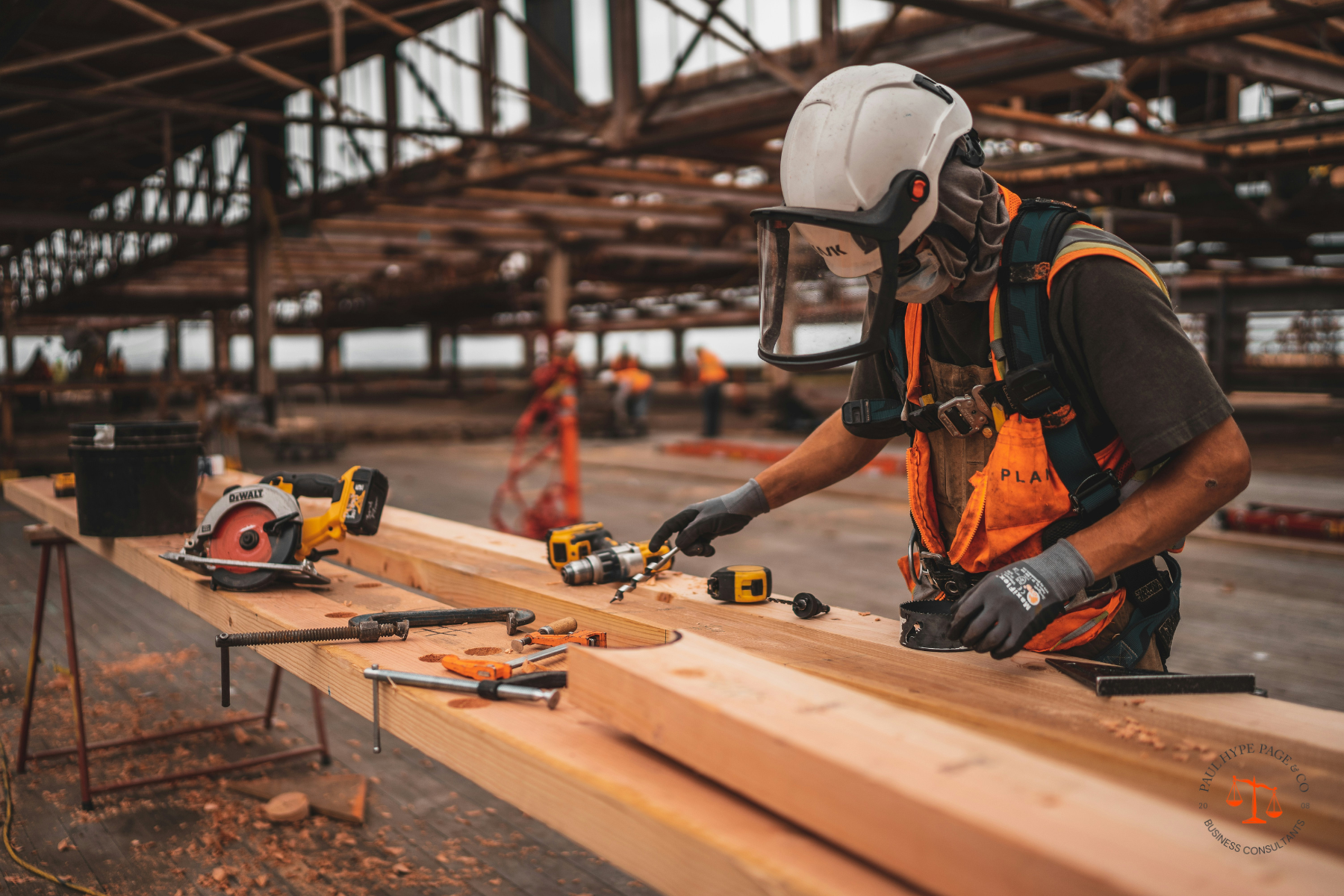What’s in this article

Introduction
The construction industry in Malaysia is one of the most regulated sectors in the country, and for good reason. Safety, quality, and accountability are critical when thousands of workers operate on sites across the nation every day. To ensure these standards are upheld, the Construction Industry Development Board (CIDB) has introduced mandatory registrations, including the CIDB Green Card.
For many workers and employers, understanding what the Green Card is and how it differs from CIDB competency certificates can be confusing. Both are important, but they serve very different purposes. This article breaks down what the Green Card is, who needs it, how to apply, and how it compares to competency certificates — giving you a clear picture of compliance in Malaysia’s construction sector.
What is the CIDB Green Card?
The CIDB Green Card, officially known as the Construction Personnel Registration Card, is an identification card issued by the Construction Industry Development Board Malaysia. It is proof that the holder is registered with CIDB and has undergone basic safety training. This card is mandatory for all construction personnel, whether Malaysian or foreign, before they can enter or work on any construction site in the country.
In simple terms, the Green Card is a site safety pass. It demonstrates that the holder has been trained in essential occupational safety and health standards. Without it, entry to construction sites is prohibited, and both the worker and employer can face penalties for non-compliance.
Why is the CIDB Green Card Important?
The Green Card is not just an administrative requirement — it is a safeguard for workers, employers, and the industry as a whole. By ensuring every worker is trained and registered, the card reduces the risk of accidents and ensures accountability on-site.
From a compliance perspective, having all construction personnel registered allows CIDB to maintain an updated database of active workers in the industry. This helps regulators monitor safety performance, issue enforcement notices, and track the development of Malaysia’s construction workforce.
Who Needs the CIDB Green Card?
The requirement applies to almost everyone involved in construction activities in Malaysia. This includes:
- General construction workers
- Skilled tradesmen such as electricians, plumbers, and welders
- Site supervisors and engineers
- Foreign workers hired under valid permits
- Contractors, subcontractors, and consultants working on-site
The rule is simple: if you set foot on a construction site, you need a CIDB Green Card. It is not limited to laborers but extends to management staff and even visitors who are required to be present on-site for extended periods.
How to Apply for the CIDB Green Card in Malaysia
Applying for the Green Card is a straightforward process, but it requires preparation. The application can be done either online or through CIDB service counters nationwide.
Step 1: Prepare Documents
- A copy of your MyKad (for Malaysians) or passport/working permit (for foreigners)
- A passport-sized photo with white background
- Proof of employment or employer sponsorship (if applicable)
Step 2: Register Online or at CIDB
Online applications are available via the CIDB website or appointed training providers. Alternatively, visit a CIDB counter or training centre to register manually.
Step 3: Attend Safety Induction Training (SIP)
Every applicant must undergo a one-day Safety Induction for Construction Workers (SICW) programme. This training covers site safety, hazard awareness, and emergency procedures.
Step 4: Payment of Fees
Fees vary depending on the category of worker, but they typically include training costs and card issuance charges.
Step 5: Card Issuance
Once training is completed and payment is confirmed, the Green Card will be processed and delivered. Processing usually takes a few weeks, but temporary proof of registration may be provided while waiting.
Validity and Renewal of the CIDB Green Card
The CIDB Green Card is valid for three years from the date of issuance. Holders are responsible for renewing it before expiry to maintain continuous eligibility to work on construction sites. Renewal involves resubmitting documents, paying the relevant fees, and updating training records if necessary.
Employers should maintain internal monitoring systems to track expiry dates and ensure workers’ cards remain valid. Non-renewal can disrupt projects and expose companies to regulatory penalties.
What Happens if You Don’t Have a CIDB Green Card?
Workers without a valid Green Card are not allowed to enter construction sites. Employers who allow unregistered workers on-site can be fined, while workers themselves may face penalties or deportation (in the case of foreign employees).
Beyond the legal risks, working without a Green Card also undermines safety. Without proper induction training, unregistered workers may lack critical knowledge of safety procedures, exposing themselves and others to higher accident risks.
CIDB Competency Certificates: What Are They?
While the CIDB Green Card confirms that a worker is registered and safety-trained, CIDB competency certificates are a different matter. These certificates verify that a worker possesses a specific technical skill or trade competency that meets CIDB’s recognised standards.
Examples of CIDB competency certificates include certifications for skilled trades such as welding, scaffolding, crane operation, or project supervision. Unlike the Green Card, which is mandatory for all, competency certificates are often required only for specific job roles or for contractors bidding on certain projects.
CIDB Green Card vs Competency Certificates: The Key Differences
Although both documents are issued by CIDB, they serve very different purposes:
- Green Card:
- Proof of registration with CIDB
- Mandatory for all site workers and personnel
- Focuses on basic safety training
- Functions as an access pass to construction sites
- Competency Certificates:
- Proof of trade or technical expertise
- Required for specific skilled roles or contract eligibility
- Focuses on professional competency standards
- Functions as a qualification for specialised work
Think of the Green Card as your driver’s license — it allows you to be on the road (site). The competency certificate is your professional license — it proves you are qualified to drive a specific type of vehicle (perform a specialised role).
Do You Need Both?
In many cases, yes. A general construction worker may only need the Green Card to work on-site. However, if you are hired for a skilled trade such as welding or scaffolding, you will also need the relevant CIDB competency certificate.
Employers should carefully review project requirements. For government and large-scale projects, it is common for tenders to specify that certain roles require competency certificates in addition to Green Cards. Ensuring compliance with both requirements protects the company from disqualification or penalties.
Common Misconceptions About the CIDB Green Card
“Only foreign workers need it.”
Wrong — both Malaysians and foreigners require the Green Card.
“It is optional if my site is small.”
Incorrect — all sites, regardless of size, fall under CIDB’s rules.
“It replaces trade qualifications.”
False — the Green Card only covers safety and registration, not professional skills.
“It is valid for life.”
Not true — the card expires every three years and must be renewed.
Why Employers Should Take Compliance Seriously
Employers are responsible for ensuring that every worker on-site has a valid Green Card. Failure to do so not only invites regulatory penalties but also puts project safety and timelines at risk. In addition, workers without proper registration may not be covered under insurance in the event of accidents, creating financial liabilities.
By also supporting employees in obtaining competency certificates, employers strengthen workforce quality. This boosts productivity, improves tender eligibility, and signals professionalism to clients and regulators alike.
How CIDB is Shaping Malaysia’s Construction Workforce
The CIDB’s dual system of Green Cards and competency certificates reflects a broader vision for Malaysia’s construction industry. On one hand, safety and compliance are non-negotiable, hence the Green Card. On the other, technical excellence is vital to maintain global competitiveness, hence the competency certification framework.
This two-layered approach ensures that the industry not only minimises accidents but also develops a highly skilled workforce ready for advanced construction projects in the future.
Conclusion
The CIDB Green Card is the foundation of compliance in Malaysia’s construction industry. It is mandatory for anyone working on-site and proves that the holder has undergone essential safety training. Competency certificates, on the other hand, validate specialised trade skills and are increasingly required for high-value projects.
Understanding the difference between the two is critical for both workers and employers. While the Green Card gets you through the gate, competency certificates open the door to specialised opportunities. For startups, SMEs, and large construction firms alike, integrating both into workforce management is the only way to stay compliant, safe, and competitive in Malaysia’s evolving construction sector.
Frequently Asked Questions
Related Business Articles
Share This Story, Choose Your Platform!


